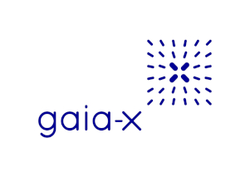The recent news

Jan. 19, 2022
Organization of scientific events

► Full Reference: Frison-Roche, M.-A., coordination and moderation of the conference L'office du juge et les causes systémiques (""The Office of the Judge and systemic causes"), in Cycle of Conferences, Penser l'office du juge ("Thinking the Office of the Judge"), Grand Chamber of the Cour de cassation, Paris, May 9, 2021, 17h-19h.
The conference is held in French.
____
► General presentation of the conference: the conference is based on the intervention of three judges, Christophe Soulard, Fabien Raynaud, and François Ancel, who think and debate among themselves on a hypothesis: the existence of "systemic causes". The hypothesis is that beyond and through the diversity of disputes and cases that are submitted to the most diverse judges, there is a category of cases that are systemic, which means containing in what is submitted to the judge for resolution a system. If such a category exists, which also raises the question of the diversity of systems and the difficulty arising from their submission to rules that are not legal (for example economic, biological, financial "laws", etc.) , then the judge should take this into account, both in the procedure and in the judgment they make on the case and in the way they formulate et restitute this judgment.
____
📝read the presentation of this conference by the Cour de cassation (in French)
📝read the program of the cycle of conferences 2022 (in French)
____
🎥see the conference video (in French)
🎥 see the synthesis video of the conference, made in situ by Marie-Anne Frison-Roche (in French)
____
✏️read the notes taken during the conference to make the synthesis (in French)
📝read the article of Marie-Anne Frison-Roche restituting this conference, published in the Recueil Dalloz (in French)
____
►read the works, basis of the two interventions of Marie-Anne Frison-Roche
🚧 L'hypothèse de la "cause systémique (made before the conference to prepare it), available en English
📝Synthese of the conference (made during the conference)
________

Jan. 5, 2022
Publications

♾️follow Marie-Anne Frison-Roche on LinkedIn
♾️subscribe to the Newsletter MAFR Regulation, Compliance, Law
____
► Full Reference: M.-A. Frison-Roche, Compliance Law and Climate. To prevent Climate Risk and build Climate Balance , January 2022.
, January 2022.
____
🎤 In its French version, this Working Paper had been written for a speech for the colloquium held under the scientific direction of Marta Torre-Schaub, Béatrice Lormeteau, & Anne Stevignon, Les risques climatiques à l’épreuve du droit Comment le droit fait-il face aux nouveaux risques engendrés par la crise climatique ? , at the University Panthéon-Sorbonne (Paris I), Amphithéâtre Liard, on March 17, 2022.
____
📝it is also the basis of an article : "Droit de la compliance et climat. Pour prévenir le risque et construire l'équilibre climatiques" ("Compliance Law and climate. Prevent the climate risk and build the climate balance")
____
► Summary of this Working Paper: Compliance Law is beginning to emerge in climate topic, through the expression "Climate Compliance Law", but the climate issue itself is the most perfect example of why General Compliance Law is made for. It is indeed a new branch of Law, a global Law claiming to provide Ex Ante solutions here and now for global issues, so that in the future systemic catastrophies will not occur, will not happen: it is these "Monumental Goals" that give meaning, coherence, and simplicity to Compliance Law.
Compliance Law, linked to the Rule of Law principle, makes it possible to go beyond the choice often presented between the effectiveness of the protection of the planet and the renunciation of freedoms, in particular the freedom to do business and the freedom of individuals, especially the protection of their data.
Climate is thus exemplary of the object of Monumental Goals of Compliance Law (I). The systemic risk that it now constitutes is analogous to Banking or Digital Systemic Risks and therefore calls for the application of identical legal Compliance Tools, formerly put in place for Banking Regulatory and Compliance Law, recently invented for Digital. Compliance Law, extending Regulation Law, itself from the precondition of the Sector and the Territory, is therefore the branch which makes it possible to put in place new legal solutions, either by force (judicial agreements, compliance programs, etc.), or by will (commitments, global charters, etc.).
Therefore, an alliance can exist between political and public authorities, and crucial economic operators (II), that the rise in power of the "raison d'être" is the sight and whose technical challenge is the collection of information that must be put in correlation. Scientists pooling Information, this public good, provided by public and private entities. The courts are at the center of this articulation between Compliance Law and Climate, which object is the Future.
____
🔓read the developments below⤵️
____
Jan. 4, 2022
Teachings : Droit de la régulation bancaire et financière - semestre 2022

Ce livret de cours décrit le contenu, la méthodologie et les objectifs du cours magistral de Droit de la Régulation bancaire et financière., tel qu'il se déroule au semestre de printemps 2022.
Le cours magistral est assuré par Marie-Anne Frison-Roche, agrégée des Facultés de Droit et professeur des Universités, titulaire à Sciences Po.
Autour de ce cours, des conférences sont assurées par des maîtres de conférence réunis dans une équipe pédagogique coordonnée par la professeure d'amphi.
Pour faciliter l'assimilation des techniques juridiques articulées à des techniques économiques et financières, Marie-Anne Frison-Roche met à disposition un Dictionnaire bilingue de Droit de la Régulation et de la Compliance. Si des notions juridiques utiles pour les étudiants s'avèrent n'être pas visées dans le Vocabulaire juridique Cornu, ouvrage de référence disponible à la bibliothèque, des nouvelles entrées pourront être insérées par MAFR à leur demande.
____
Le livret détaille la façon dont les étudiants, qui suivent cet enseignement, situé dans le semestre de printemps de la première année du Master Finance et Stratégie de Science Po, sont évalués afin de valider ce module. Il précise la charge du travail requis.
Cet enseignement conçu et fondé par Marie-Anne Frison-Roche il y a plus de 10 ans était réparti entre 24 heures de cours d'ampli et 24 heures de conférence. La direction de l'École ayant demandé en 2019 la réduction du volume global de cet enseignement, il a été décidé de réduire plutôt le volume du cours d'amphi afin que les conférences, par nature plus interactives, ne soient pas amputées.
Les 12 leçons de cours d'amphi, désormais archivées, ont été remplacées par 6 leçons. Celles-ci débutent immédiatement, l'introduction générale ayant été supprimée. Elles ont été rassemblées autour de ce qui touche directement la matière (ainsi le Droit des contrats ou le Droit de la concurrence sont des thèmes désormais non-traités) afin que les conférences ne soient pas trop affectées par cette réduction. Pour ceux qui voudraient avoir une idée de ces thèmes, néanmoins assez important en matière financière, il convient de se reporter à la documentation telle qu'elle était disponible en 2018 : plan général, ensemble des résumés ; documentation ; références techniques ; slides, pour appréhender tout ce qui ne sera pas vu dans cette présente configuration.
À première vue, le cours d'amphi se déroulant à partir de fin janvier 2022, les conditions sanitaires rendront supportables un cours d'amphi en présentiel en raison d'une distance suffisante entre la professeure et les étudiants. Le cours se déroulera donc semaine après semaine. Si les conditions sanitaires ne rendaient pas cette perspective raisonnable, il est concevable que l'ensemble de ces 6 leçons soient mises à la disposition des étudiants immédiatement pour qu'ils puissent travailler avec une vue d'ensemble cette matière juridique, qui est pour certaines complètement nouvelle, avant même de commencer leur conférence . De toutes les façons, puisque les étudiants sont disponibles en janvier 2022, l'ensemble de la documentation a été rassemblée pour que les supports généraux d'une part et les supports particuliers à chaque leçon soient disponibles début janvier, afin que les étudiants puissent s'ils le veulent utiliser leur temps disponible pour commencer à étudier par eux-mêmes la matière dans un premier tour d'horizon, par des lectures, voire en regardant par avance les slides qui ont été élaborées d'une façon détaillées à cette fin.
Les thèmes des 6 leçons qui composent le cours d'amphi sont énumérés dans un plan général, qui restitue la cohérence entre chacune de ces 6 leçons, dans les liens qu'elles ont les unes avec les autres.
Cela permet alors aux étudiants de travailler immédiatement, notamment parce que chaque leçon s'appuie sur des références afférentes à chaque thème et un ensemble de documents et de lectures, rassemblées dans un Thesaurus, constitués pour eux par Marie-Anne Frison-Roche.
D'une façon plus globale, une bibliographie générale, permet à tous les étudiants de préparer les exercices qui leur sont demandés en parallèle dans les conférences, puisque le travail de coordinations de l'équipe pédagogique permet à la fois à chaque conférence de conserver son originalité et d'avoir des points de contact avec le cours d'amphi.
Il convient de consulter très régulièrement les sites des Autorités de Régulation et de Supervision, française, européenne, étrangère et internationales, car elles expriment la doctrine juridique de celle-ci. Cela permet de comprendre que le Droit ne se réduit pas à la Réglementation. De la même façon, la lecture des journaux permet de mesurer la place centrale des décision des tribunaux en la matière. Les réflexes juridiques (et non pas la connaissance mécanique de la "réglementation") sont un atout essentiel pour toute perception stratégique et ces lectures permettent de le comprendre.
Pour suivre au jour le jour l'actualité en matière de Droit de la Régulation et en Droit de la Compliance, le plus simple est peut-être de suivre sur LinkedIn la Newsletter MAFR – Law, Compliance, Regulation ou/et de suivre le profil personnel de Marie-Anne Frison-Roche sur ce réseau professionnel.
Lire une présentation détaillée de l'enseignement ci-dessous⤵

Dec. 24, 2021
Publications

🌐 follow Marie-Anne Frison-Roche on LinkedIn
🌐subscribe to the Newsletter MAFR Regulation, Compliance, Law
____
 ► Full reference: M.-A. Frison-Roche, Conceiving Power, Working Paper, December 2021
► Full reference: M.-A. Frison-Roche, Conceiving Power, Working Paper, December 2021
____
📝 This Working Paper serves as the basis for an article to be published in the collective book drawn up in tribute to Professor Emmanuel Gaillard.
____
► Working Paper summary: In 1985, Emmanuel Gaillard's central work came out under the title Le pouvoir en droit privé (The Power in Private Law)📎!footnote-2418, but when it was defended in 1981, his thesis directed by Dean Cornu was entitled La notion de pouvoir en droit privé (The notion of Power in Private Law) 📎!footnote-2419.
Let's give full force to the original title of the thesis.
The deletion of the term notion perhaps implies that by defining something the essential is done, that there would be something of a pleonasm in aiming at The notion of Power and The Power, as Law likes to economise on words.
But it was indeed a renewed, simpler and more powerful conception of the notion of Power, containing the entire regime necessarily imputed, that this work imposed, henceforth illuminating positive Law. Emmanuel Gaillard's definition, on the other hand, goes beyond Private Law. We would gladly have argued in favour of retaining the heading for the term Notion, proposing instead to dispense with the reference to Private Law alone ....
Perhaps it was because the concept is so vast that in this seminal thesis its scope was restricted to Private Law, since the author already had to account for the sheer multiplicity of manifestations in this part of the legal system; Or perhaps it was because the concept of 'Power' is so familiar in Public Law that it would have needed less definition in Public Law (which, moreover, is so diversely proposed in this more political area, which is already careful on principle to distinguish between powers, which must always be plural in order to be separated), and that it was therefore reasonable to want to arrive at a single concept of Power in Private Law, where the notion of subjective rights is more familiar.
However, Emmanuel Gaillard's definition of Power as a prerogative placed, by legal rule or contract, in the hands of the person invested with them for the benefit, at least in part, of others, covers both Public and Private Law. This even contributes to the solidity of this thesis and explains why it flourishes today in legal systems where the distinction between Private Law and Public Law is weakening.
The power of this definition lies in its simplicity. Simple and brave minds are often the most fruitful. As Dean Gérard Cornu points out in his preface, the author, in particular because he bases himself more on positive law, for example that relating to the powers of corporate officers, does not get bogged down in discussions between authors only to end up preferring one over the other. He arrives at a definition that is close to our everyday experience: the one we experience when we collect an envelope on behalf of someone else and the agent asks us in what capacity we claim to be doing this on his behalf. We then show him our 'power', the legal power to do so for the benefit of the person to whom the letter is addressed, and can thus exercise the power to withdraw the letter, even though it is personal. When legal and common sense come together, it is a good omen, not only in terms of form, because everyone can understand it and the Law must remain comprehensible, but also in terms of substance, because everyone must be able to control the exercise of a power that is exercised for and over others. For this letter addressed to someone else, the person who has been able to take it by virtue of the power conferred on him/her, could just as easily open it and read it, then destroy it or give it to the worst enemy of the person to whom it was addressed. In Power, there is always might to do, and the danger to others that Power contains therefore.
This highly legal definition of Power not only distances the holder from his/her own interests, but also channels the Power thus granted to the person who benefits from it. In this respect, Emmanuel Gaillard not only distinguished between Power and subjective right, but also identified the right amount of power required for this power to effectively fulfill this 'Mission', through the notion of abuse of power, when the holder uses for other beneficiaries this power that was conferred on him/her for this sole purpose.
What is more, this concept makes it possible to distinguish Power from discretionary force, because the holder of Power thereby exercises factual , by acting for others, deciding for others, deciding on others. Because Power is inseparable from might, but might must remain the means of power and no more, the Law shall produce the antibodies that are not only the theory of abuse of power but also an Ex Ante responsibility that accounts must always be rendered, either to the other for whom everything is done or to a third party. For this third party is often there from the outset, the guardianship judge for example: because the Power was put in place because of the beneficiary's weakness, both in himself/herself and because of the situation, an impartial and disinterested third party is needed to ensure proper execution from the outset, without there even being a dispute. In this respect, how useful this thesis is for thinking about what Supervision is today!
This thesis, so clear, so simple and so strong, goes beyond Private or Civil Law. It is both much more restrictive than the more factual and political definition of Oower, which would be the ability to do something, and much broader than the usual definitions, since it embraces and legitimises de jure all situations where a person acts legally for the benefit of another. Dean Cornu shows, moreover, in two sentences that such a notion of power also captures the office of the judge, who has power over others only to serve them 📎!footnote-2420. The definition corresponds to the mission of one who has power only to fulfill his office. It suits so well the conception we have today of Administration, especially if it takes the form of independent authorities.
Moreover, Power thus contains its own limit in its very definition, since others are present in it: the holder has power only to serve others. From then on, it is only a power because it is a kind of Charge. Emmanuel Gaillard immediately uses the term: "Un individu se voit confier une charge qu'il exerce dans un intérêt au moins partiellement distinct du sien propre" ("An individual is entrusted with an office which he exercises in an interest at least partially distinct from his own") 📎!footnote-2422. Dean Carbonnier, who reformed the legislation in this area 📎!footnote-2456,, emphasised that the guardian has a public duty because the State entrusts him/her with a child. In the same way parental authority is a charge on the parents for the benefit of the children. More generally, Power is a burden that the Law places on a person to satisfy the interests of another.
This definition offered by Emmanuel Gaillard in 1981, anchored in Private Law only insofar as it is the entire legal system, is premonitory of the Regulatory and Compliance Law as it unfolds today. It would be enough to continue the Gaillard's sentences, as if they had been half-written, to finish them 40 years later and find in them the mechanisms of Supervision of companies by public authorities which are now in place not to reduce their power but to ensure that they exercise it for the benefit of others 📎!footnote-2457. The whole evolution of Company Law and Financial Law is here. Between the lines of this thesis, which develops the notion of duty 📎!footnote-2421, we can also see what positive Law is developing today, in particular through the 'duty of Vigilance', this personal responsibility for the benefit of others (I).
The definition of Power thus conceived contains within itself its regime and enables us to anticipate it better today: because the holder exercises Power only for others, at least partially, he is consubstantially accountable for it, responsibility being only one form of this accountability; because this service must be effective and others must benefit fully from it, because unlike the subjective right which allows the holder freely not to use his might, Power has never been the 'most absolute' availability to use his/her might: it is even the opposite. It is the expression of a Power assigned to a purpose, compelling the holder to use his/her Power to that end. But it is equally necessary for the holder to have all the might to do so, otherwise the very notion of 'Power' is meaningless. This is the definition that should be given to the principle of Proportionality: the person on whom the Power rests must have not more power than is necessary, but all the power necessary to achieve the Monumental Goals for which the Power has been entrusted to him/her, so that others may derive full benefit from it (II).
In today's positive Law, the definition of Power as a Duty is found not only in Private Law but also in Public Law, not least because pure might, i.e. those that do not account for the use of their might, are in decline while concern for others is on the increase. The days of discretionary powers are over, and the increased independence of those who exercise Power over others requires them to be accountable. Beyond this Accountability, the personal Responsibility of those who have the Power to serve others is being established. But, no doubt because the Law is slow to evolve, the correlative idea that the holder of Power must have all the powers required to carry out his/her mission is less entrenched: As Emmanuel Gaillard has shown, the Law has only gone part of the way in sanctioning excesses of power, when the holder uses his/her power for other goals, but it has not yet clearly established that the holder - sometimes forced - of a Power is legitimate in using all the means required to achieve the result for which this Power, i.e. a charge and a duty, has been conferred on him/her.
No doubt we need to read Emmanuel Gaillard's thesis again in all its potential, to imagine the reading we could do today of what he could have written as if on blank pages that would write themselves, a magical thesis where everything is already there, a thesis so short (250 pages) and so beautiful, so dense that it already contains the Law of the Future. The Law of the Future 📎!footnote-2458 where there must be much more responsibility for the benefit of others📎!footnote-2423 and powers since this notion includes others who are the beneficiaries. Droit de l'Avenir where Emmanuel Gaillard will be present, in particular thanks to this work of doctrine offered in 1981. So that, in practical terms, those who are entrusted with looking after others - for example, today all companies obliged by Compliance Law to look after others so that they are not destroyed by hatred in the digital space, by corruption in the economic system or by climate change in a projected future - do not find themselves challenged by the same Law for the means of exercising this power for the benefit of others, for example when this involves 'judging'. Dean Cornu himself emphasised the identity of the two offices.
____
Lire les développement ci-dessous⤵
Dec. 21, 2021
Compliance: at the moment

<iframe src="https://www.linkedin.com/embed/feed/update/urn:li:share:6878948135314583552" height="730" width="504" frameborder="0" allowfullscreen="" title="Post intégré"></iframe>
Dec. 6, 2021
Conferences

🌐 suivre Marie-Anne Frison-Roche sur LinkedIn
🌐s'abonner à la Newsletter MAFR Regulation, Compliance, Law
____
► Référence complète : Frison-Roche, M.-A., "Cas climatiques, devoir de vigilance, pouvoir des juges", dans la participation à la table rond "Notre planète brûle ; quels leviers d'action pour les entreprises et les Etats ?", in Paris Legal Makers, 6 décembre 2021.
____
► Consulter le programme général de la manifestation
____
► Revoir la vidéo de la table-ronde
____
► Résumé de l'intervention : Le débat d'une heure a porté sur les enjeux climats et la façon dont ceux qui font le Droit peuvent contribuer aux réponses que les entreprises et les État y apportent.
A ce titre et interrogée précisément par la journaliste sur le mouvent, j'ai mentionné que la population du monde entier s'adresse directement aux tribunaux qui ne les accueillent et appliquent un Droit en formation dans des législations à portée globales. Pour ne prendre que l'année 2021, dans des décisions sensationnelles, le Tribunal constitutionnel allemand dans sa décision du 29 avril 2021 a déclaré une loi votée par le Parlement allemand contraire à la Constitution, alors même qu'elle avait pour objet la lutte contre le changement climatique car elle laisse ouvert la possibilité pour l'État de ne rien faire avant 2030, alors même que les études scientifiques ont établi que l'inaction totale était l'assurance de la catastrophe climatique. L'alliance de la science et du Droit, la reconnaissance des droits subjectifs présents des générations futures (puisque leur sort aurait donc pu être déjà scellé) a conduit à cette solution.
Le mois suivant, le Tribunal de La Haye a condamné le 26 mai 2021 l'entreprise Shell à réduire de 45% ses émissions émission de gaz à effet de serre d’ici 2030, puisqu'elle s'y était engagée dans ses documents publics. En s'appuyant sur les textes de responsabilité, c'est une responsabilisation de l'entreprise et non pas un dédommagement pécuniaire : c'est de l'action concrète future qui est requise.
Le mois suivante, le Conseil d'État français dans sa décision Grande Synthe s'est appuyé sur la reprise par la France dans sa législation (loi de programmation) des Accords de Paris pour lui enjoindre de respecter sa propre législation, en suivant sa "trajectoire", la notion de transition étant nécessaire dans les questions climatiques et le Droit de la Responsabilité Ex Ante qui est en train de se mettre en place.
La suite du débat a mis en lumière l'importance du nouveau "devoir de vigilance" qui pèse sur les entreprises, notamment dans les enjeux climatiques.
Interrogée sur ce point, j'ai relevé que le Ministre des Affaires étrangères avait lui-même en ouverture de la journée souligné l'importance de la loi dite "Vigilance" de 2017 et de la prochaine directive en la matière. Effectivement, c'est un devoir qui engage une responsabilité, dont le Conseil constitutionnel a souligné qu'elle était personnelle et non pas pour autrui.
C'est à court terme une mauvaise nouvelle pour les entreprises mais à moyen ou long terme c'est aussi un moyen pour elles de jouer un rôle au niveau global, d'assurer un rôle plus important, d'obtenir des informations de la part des entités dont elles répondent, de changer de niveau, de faire une alliance avec les Autorités publiques et politiques. C'est cette nouvelle Compliance, notamment environnementale, calquée sur la loi dite "Sapin 2", qui n'est qu'un exemple du Droit de la Compliance, lequel est le Droit du Futur, le Droit par lequel le Futur est appréhendé par l'action, l'obligation d'agir ou la volonté d'agir.
Il est vrai que cela change leur gouvernance, notamment dans l'organisation probatoire, puisque les personnes qui leur demande des comptes n'ont plus la charge que de la "vraisemblance" et non plus tant de la preuve, et c'est un nouveau système probatoire qui se met en place, où les legal makers ont toute leur place dans le quotidien des entreprises.
Les Juges interviennent à la demande directe de la population. On leur reproche de répondre mais on leur en voudrait sans doute de ne pas le faire, ils veillent à toujours se référer aux "engagements" soit des entreprises (Shell), soit des Etats (Grande Synthe) ; sans doute anticipent-ils les textes de demain, qui arrivent (comme la directive sur la vigilance).
________
Dec. 3, 2021
Conferences

 ► Référence complète: Frison-Roche, M.A., La protection des lanceurs d'alerte et le Droit de la Compliance, Université d'Orléans, 3 décembre 2021.
► Référence complète: Frison-Roche, M.A., La protection des lanceurs d'alerte et le Droit de la Compliance, Université d'Orléans, 3 décembre 2021.
____
📅 Lire le programme de ce colloque
____
► Consulter les slides de la conférence
► Présentation de la conférence : La transposition en Droit français de la Directive européenne du 23 octobre 2019 sur la protection des personnes qui signalent des violations du Droit de l'Union ne révolutionne en rien le dispositif tel qu'il a été conçu par la loi dite "Sapin 2". Soit parce que celle-ci, qui avait consacré un chapitre complet au personnage, saisi non pas en tant que tel mais à travers sa protection, avait donc anticipé le texte européen, la Loi n'ayant donc plus rien à achever. Le titre reste d'ailleurs presque le même que celui du chapitre de la loi dite "Sapin 2 : Proposition de loi visant à améliorer la protection des lanceurs d'alerte, avec une proposition de loi organique concernant l'office accru du Défenseur des droits.
Cette sorte d'appréciation en marge de la copie de la précédente loi ("c'est bien, mais peu mieux faire"....) écarte tout vrai changement. Soit parce que s'il y avait eu quelque chose à changer, ce n'était pas tant concernant la protection du lanceur d'alerte que plutôt de ce qui avait été suggéré par beaucoup 📎!footnote-2305 lors des travaux de la Commission Gauvain-Marleix 📎!footnote-2307, à savoir d'aligner le lanceur d'alerte européen sur ce qu'il est aux Etats-Unis, en ce qu'il reçoit récompense de l'information qu'il transmet et en ce qu'il la transmet directement à l'Autorité publique qui est en charge d'en faire usage.
En effet, décidemment le singulier sied si peu à ce personnage qu'il faille toujours parler "des lanceurs d'alerte" et non pas du lanceur d'alerte 📎!footnote-2306 .... Parce que sans doute l'on ne comprend pas tout à fait pourquoi il est fait, ni pourquoi il agit.
Dans un Droit de la Compliance, entièrement construit sur les Buts, cela est particulièrement troublant.
En effet, il est acquis que, de la même façon que la cartographie des risques est l'élément objectif du Droit de la Compliance, le lanceur d'alerte est son élément subjectif : le personnage qui est là pour faire sortir de l'information.
En cela le Droit de la Compliance est le prolongement du Droit de la Régulation, lequel lutte contre l'asymétrie d'information (ce qui n'est pas l'objet du Droit de la Concurrence). Le Droit de la Compliance est d'autant plus un Droit centré sur l'information que c'est ainsi qu'il peut atteindre les Buts Monumentaux pour lesquels tous ces instruments, objectifs et subjectifs, sont institués, et dans lesquels sa normativité réside. Ainsi l'entreprise détecte l'information, rassemble l'information, diffuse l'information, etc.
Elle la fait circuler à l'intérieur, elle invite les parties prenantes extérieures à y participer, elle communique des informations internes à des agents externes de légalité. Elle le fait parce qu'elle y est contrainte, le Droit de la Compliance étant empreint d'ordre public de direction, puisque c'est pour la prévention des crises systémiques globales que ce système contraignant s'abat sur les "opérateurs cruciaux", entreprises en position de concrétiser ces buts. Ce n'est que par surabondance que leur raison d'être ou leur responsabilité sociétale peuvent venir reprendre à leur charge ces directives formulées par les Autorités publiques qui les supervisent.
Le lanceur d'alerte est donc celui qui va dans une entreprise, soit rétive, soit incapable, extraire ou transmettre une information, soit à la bonne source, soit au bon destinataire, soit lui appliquer le bon traitement. Il est donc essentiel au traitement de l'information pour que le But Monumental soit rempli.
Le lancement d'alerte au sein de Facebook est particulièrement illustratif de cela. Puisque c'est au sein de l'opérateur crucial obligé par le Droit de lutter contre la désinformation et les discours de haine que l'information apparait donc comme quoi l'entreprise ne l'a pas forcément comme premier souci. La discussion semble s'engager pour savoir si, d'une part, cela est normal ou pas et si, d'autre part, la lanceuse d'alerte est animée ou non de "bons sentiments".
Mais revenons sur le texte européen et sa transposition, par rapport à l'esprit de ce qu'est le Droit de la Compliance, notamment conçu aux États-Unis en Droit financier. La loi dite "Sapin 2" avait posé que le lanceur d'alerte doit être "désintéressé" et agir de bonne foi. Il avait été suggéré que cette exigence de désintéressement soit supprimée et la seule exigence de bonne foi, par ailleurs présumée, maintenue. Mais la conception moralisatrice du lanceur d'alerte continue de prévaloir : il y a donc deux catégories, le lanceur d'alerte qui agit par amour du Droit, du Juste et du Bon (et qu'on aime) et le chasseur de prime qui agit par amour de l'argent ou par haine de celui qu'il dénonce (et que l'on n'aime pas). Voilà donc notre pluriel explicité...
La Securities and Exchange Commission - SEC , autorité fédérale américaine des marchés financiers n'aime pas particulièrement ceux que l'on n'aime pas, les méchants haineux rapaces, mais elle lutte contre l'asymétrie d'information et c'est pour lutter contre les abus de marché dont la source même est à l'intérieur des entreprises, ce qui causa la crise de 1929 puis la Seconde Guerre Mondiale qu'elle fut elle-même instituée : chaque année, un de ses départements, qui a pour titre ..., fait le classement des récompenses attribuées aux whistleblowers , en mettant en premier celui qui a gagné le plus en lui apportant l'information d'un abus de marché, ce qui prévient une crise systémique financière. Car pour le Régulateur financier, il ne fait pas de doute que le lanceur d'alerte est un agent de la légalité qui doit servir à prévenir les crises systémiques, et doit être incité à la saisir, et à la saisir directement.
Le Législateur français reste au milieu du gué. Pour l'instant, il change la formulation mais pas trop. Il faudrait simplement que le lanceur d'alerte ne reçoive pas de "contrepartie financière directe". Ainsi l'amour de la Loi ou du prochain ("désintéressement") ne serait plus requis. S'il n'y a plus d'argent, la haine pour l'entreprise, le ressentiment, cette triste passion si bien dénoncée par Rousseau serait donc autorisée. C'est vrai, c'est souvent cela qui anime la personne qui lance l'alerte. Tandis que le filtre consistant à l'obliger à saisir l'entreprise même que par un "acte citoyen" (expression utilisée par la proposition de loi) est conservé, la proposition de loi organique accroissant un peu l'aide apportée par le Défenseur des droits.
Donc, le pas n'a pas été franchi. Parce qu'on continue à ne pas admettre ce qu'est le prix de l'information. Ce sont donc de toutes petites améliorations que le prochain état du Droit va apporter.
Après avoir ainsi examiné la réforme qui n'a pas eu lieu et qui aurait tiré conséquence de l'articulation du statut du lanceur d'alerte avec le Droit de la Compliance, en tant que celui-ci est un Droit de l'information pertinente pour atteindre des Buts Monumentaux (I), il est donc possible d'examiner la petite réforme qui va avoir lieu sans se soucier de l'information pertinente et en améliorer un peu deci delà les lanceurs d'alerte, dont la définition est un peu élargie, dans les relais externes dont ils bénéficient sans que cela ne brise leur obligation d'en parler d'abord à l'intérieur ce qui ôte la dimension directement systémique à leur action, dans l'aide financière dont ils ont soudainement le bénéfice quand à la fin des fins l'entreprise agit contre eux "en représailles" (II).
Il ne me semble pas que pour l'instant, dans un système juridique national qui sera peu changé, le lanceur d'alerte soit un personnage ni très efficace ni très choyé par le Droit français.
____
Nov. 30, 2021
Conferences

► Full Reference: Frison-Roche, M.-A., Legal Focus: Compliance Ex Ante, in GAIA-X, Toward Automated Compliance in the Data Economy , November 30, 2021, online
____
Listen to the intervention.
Intervention Summary: Compliance Law has two senses and GAIA-X is a perfect illustration. Firstly, to respect rules and show in Ex Ante permanently this respect (procedural definition) ; secondly, to pretend certain specific "Monumental Goals" (substantial definition).
In this second sens, Compliance Law is very different from Competition Law: it required in Ex Ante collaboration, transparency, stability to reach these Monumental Goals around the respect and protection of Humans, while Competition Law is based on fighting, mobility and trade without obligation Ex Ante, just sanction Ex Post if a prohibitive behavior occurs.
GAIA-X is based on Compliance Law, established for the purpose of a European Data Industry, a Monumental Goal linked to the Sovereignty and people's protection: it must structurally oblige its members to collabore for this goals, notably through its policy rules (first sens).
It is also a part and subject of the European Union Law. In the sense, its members must obey European Regulatory system (second sens).
The both are narrowly linked because the European legal system has the same purpose of sovereignty, internalization of goals in enterprises and individuals' protection: GDPR, Cybersecurity, Digital Services Regulation, etc. : members must show permanently they do it actively.
Because the purposes of GAIA-X and the purpose of the European Union Law are now the same in the Compliance Law the respect of letter's Law but also the respect of spirit's Law matters.
Both are Ex Ante. Therefore, Compliance by design, which is also Ex Ante, is adequate.
Automated Compliance (and automated Certification) are tools to obey and reach the Monumental Goal.
GDPR has specific dispositions (articles 24 and 42) about them, but more generally the efficiency these tools are validated by Regulatory Body, and Courts notably through the design of Smart Contrats.
It could be prudent to put in adition some human Compliance control because, by definition, an Automated Compliance is just the technological transposition (second level) of legal norme (first level) and cannot create new normes.
This is why the more important in this conception in Ex Ante of Compliance by this marriage between Law and Technology is to keep in mind not only the letters put in the algorithms but only the spirit of Compliance Law.
______
Go back to the previous intervention about Compliance Law as an adequate branch of Law for GAIA-X (November 2020)